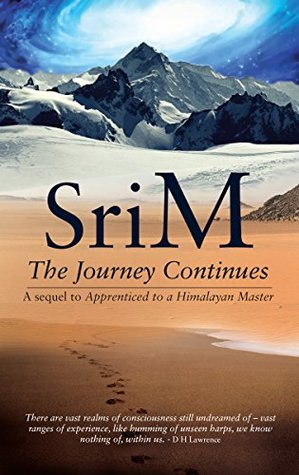More on this book
Community
Kindle Notes & Highlights
Pure nature is not man made and the closer you are to it, the quieter becomes the mind.
The reason is that the state nearest to the thoughtless tranquility of samadhi is experienced by the ordinary human being only during the act.
Giving up all reasoning, arguments and doubts, the mind, then lets go of the
chain of thoughts and becomes as still and placid as an infinite expanse of clear water, without a single ripple on it.
It is in that calm, mirror-like, pure mind that the ultimate, absolute, blissful reality,...
This highlight has been truncated due to consecutive passage length restrictions.
blessed by an abundant rush of energy as it is linked to the very fountainhead of the tremendous energy that operates the entire universe, is not ruffled by obstacles or failures.
Sankhyas are atheists like the Jains, and do not believe
in a creator God.
evolves
Now, Purusha, the pure spirit has become entangled with matter Prakriti.
Even mind or thoughts, both according to yoga and Sankhya, is matter even at its subtlest levels and the aim of yoga is Chitta Vriti Nirodha, which is first restraining and then getting rid of the mind’s activity, which is constantly engaged in various forms.
A calm mind with no distractions and impurities when attained, intuitively understands the Purusha in its pristine, all pervading glory.
Yoga, however, does not agree with the adoption of extreme measures to bring about transformation and lays stress on moderation in everything: food, sleep and even meditation.
personal
The only God that the Sankhyas admit is a nearly perfected being temporarily in charge of the spiritual evolution of a certain cycle of creation.
the mind has to be freed of all distractions and opposites of attraction and repulsion, cleared of all violent thoughts and propensity for violent action and made quiet and tranquil, as a pre-requisite to the realization of the
one who is in control of his sense organs and emotions;
one who remains tranquil and equanimous in the midst of praise or blame, happiness or sorrow; and
one who is kind and compassionate and always thinks of the welfare ...
This highlight has been truncated due to consecutive passage length restrictions.
After progressing and quietening the mind, the practioner based on his or her experiences,
can decide the issue of God or no God.
A peaceful and compassionate atheist is better than a violent and cruel theist.
Yes, read the Yoga Sutras of Patanjali. Swami Vivekananda’s commentary on the Yoga Sutras called Raja Yoga is a must. Also
read the Siddha Siddhantha Paddhati and Svatmarama’s Hatha Yoga Pradipika. You may also read the Gheranda Samhita. Another excellent commentary on the Yoga Sutras of Patanjali is the Yoga Sudhakara by the great Sadashiva Brahmendra.


